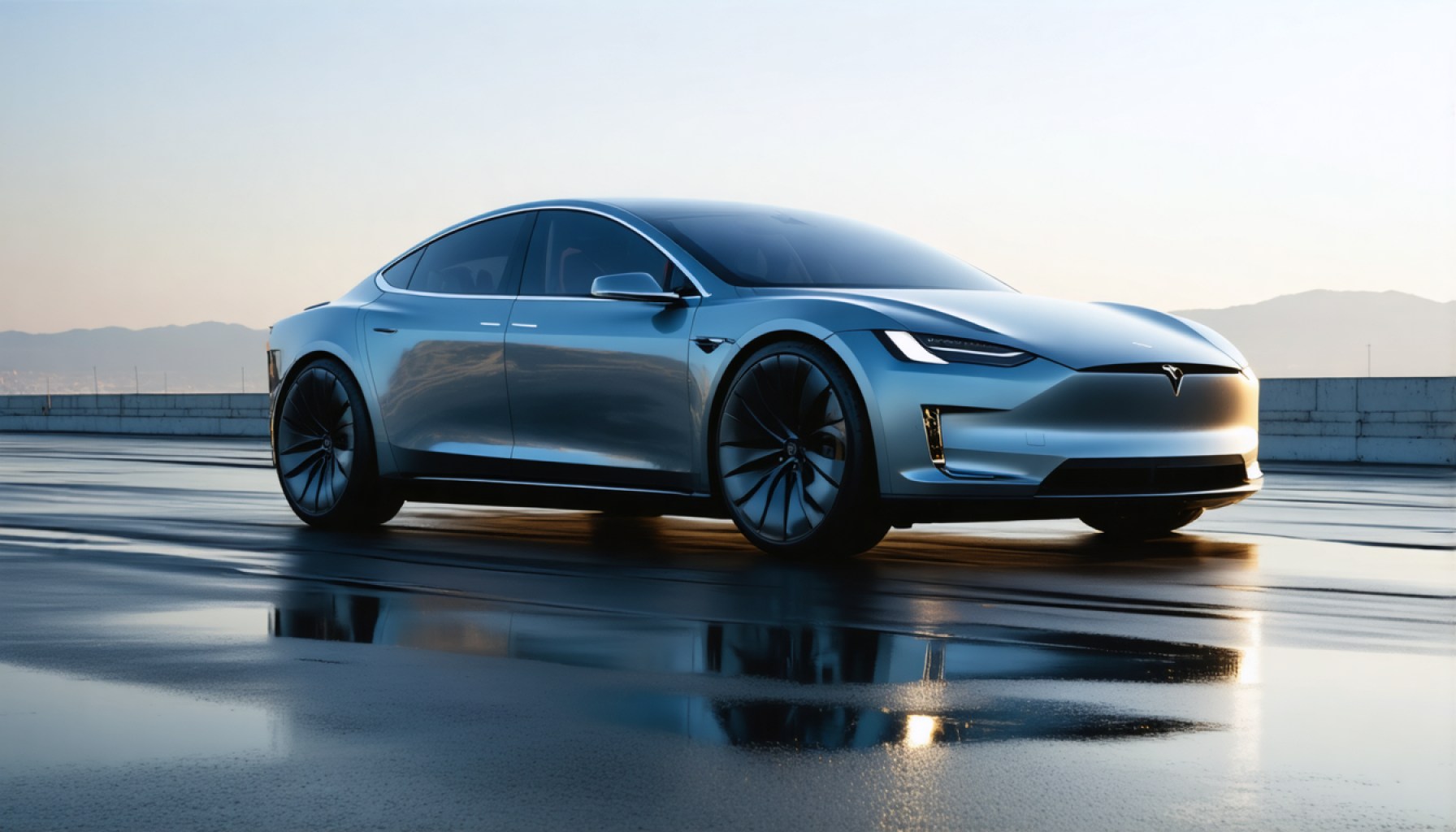- Tesla faces brand challenges due to political controversies and recalls, leading to diminished European sales by 42%.
- Lucid Group capitalizes on Tesla’s troubles, appealing to luxury EV consumers with its award-winning designs and increased defectors from Tesla.
- Lucid aims to double production to 20,000 vehicles by 2025, signaling growth ambitions beyond merely attracting former Tesla owners.
- Despite growth, Lucid faces financial hurdles, reporting a $2.7 billion net loss, necessitating strategic agility and scaling efforts.
- The Tesla-Lucid dynamic echoes Uber and Lyft’s past rivalry, showcasing Lucid’s opportunity amid Tesla’s brand turbulence.
- Lucid’s long-term success hinges on balancing immediate opportunities with sustained production and profitability goals.
Tumultuous winds are sweeping through the vast landscape of electric vehicles (EVs) as a once unassailable titan faces a brand dilemma. Tesla, an emblem of both innovation and controversy, is finding its shimmering brand tarnished amid a storm of political satire and consumer discontent. While sales in Europe dwindle by a staggering 42%, and recalls besiege the Cybertruck for hazardous panel mishaps, another player steps into this widening breach, poised for ascendancy.
Enter Lucid Group, a nimble dreamer carving its path in the luxury electric market. Celebrated for its sleek designs and award-winning ranges, Lucid offers a perceptible shift for the discerning driver vexed by Tesla’s beleaguered image. This surge comes as disgruntlement over Tesla’s political entanglements crescendos. Lucid’s agility is paying dividends; reports reveal a sharp “dramatic uptick” in former Tesla owners discovering solace in Lucid’s refined offerings.
A look back in history brings a striking comparison. When Uber found itself ensnared in political fracas and rapidly losing ground, Lyft emerged with open arms to receive defectors disenchanted by Uber’s perceived transgressions. This mirrors the current shift as Tesla’s self-inflicted storms unveil opportunities for Lucid to bask in the sun.
To thrive, Lucid must do more than bask—it must build. Its aspirations to double production to 20,000 vehicles in 2025 delineate an ambitious arc, one that’s steered not merely by Teslaphobia but by a commitment to excellence. Yet, as promising as this momentum appears, Lucid must conquer the economic challenge of profitability, having reported a net loss of $2.7 billion despite a burgeoning portfolio.
In this tumult, Lucid’s success isn’t predestined; it’s contingent on strategic dexterity and patience. As Tesla’s brand crisis lingers like a stubborn cloud, Lucid enjoys a clear sky in sales, yet the pressing goals of scaling production and achieving profitability loom on its horizon.
The saga of Lucid unfurls in a dance of opportunity and ambition as Tesla’s fraught narrative continues. In this unfolding drama, the real victor will be the one who not only captures the spotlight of the moment but can proceed to illuminate the path for the future.
Is Lucid the New King of Electric Vehicles? Discover the Facts Behind Tesla’s Decline
The Rise of Lucid Motors and the Challenges Facing Tesla
Electric Vehicle Market Dynamics
The global electric vehicle (EV) market is expected to grow rapidly, spurred by technological advancements, increasing government incentives, and a shift toward sustainable transportation. According to the International Energy Agency, EV sales surpassed 10 million units worldwide in 2022 and are predicted to continue on this upward trajectory, likely doubling by 2030.
Tesla’s Challenges
Tesla faces several significant challenges impacting its market position:
– Decline in European Sales: Tesla’s sales in Europe have plummeted by 42%, suggesting that consumers in one of the most competitive EV markets might be shifting preferences.
– Recurring Recalls: The recent recalls of the Cybertruck due to panel hazards denote ongoing quality control issues, impacting consumer trust.
– Political Controversies: Tesla’s image has been entangled with political issues, potentially alienating a portion of its customer base.
Lucid’s Strategic Advantage
Lucid Motors is positioning itself as a luxury alternative to Tesla, capitalizing on its competitor’s woes:
– Design and Quality: Known for sleek aesthetics and award-winning range capabilities, Lucid attracts former Tesla clients with its luxury appeal.
– Innovation: Lucid has invested significantly in R&D, focusing on efficiency and performance of its electric sedans.
Lucid’s Challenges
Despite its growing brand recognition, Lucid is not without obstacles:
– Production Goals: To meet its ambitious target of producing 20,000 cars by 2025, Lucid must continue scaling operations efficiently.
– Profitability Concerns: The company reported a net loss of $2.7 billion, highlighting the challenge of achieving financial stability.
Real-World Use Cases and Industry Trends
Emerging EV Market Trends
1. Increasing Range and Battery Tech: As battery technology evolves, both range and charging times are improving, crucial factors in consumer decision-making.
2. Luxury and Sustainability: There’s a growing demand for luxury EVs that offer sustainable yet premium experiences, a niche both Lucid and Tesla are vying for.
Comparison with Rivals
– Pricing and Features: Lucid’s pricing, while premium, mirrors its technological offerings, potentially justifying its cost against equivalently priced Tesla models.
– Customer Perception: Lucid’s brand currently benefits from Tesla’s controversies, reminiscent of how Lyft gained ground against Uber during its political and ethical controversies.
Security and Sustainability
– Safety Features: Both companies are working on autonomous driving technologies but differ in approach and execution.
– Sustainability Commitment: Lucid emphasizes eco-friendly manufacturing processes, aligning with consumer demand for more sustainable practices.
Quick Tips for EV Buyers
1. Consider Key Features: Evaluate factors like range, charging infrastructure, and brand reliability.
2. Understand the Total Cost: Factor in maintenance, insurance, and potential rebates or incentives.
3. Test Drive: It’s crucial to experience the vehicle firsthand to ensure it meets personal expectations.
Conclusion
As Tesla navigates through its brand challenges, opportunities arise for Lucid Motors to capture a share of the luxury EV segment. However, success will depend on overcoming production and profitability hurdles while maintaining its premium brand appeal.
For more information on sustainable transportation and market innovations, consider visiting Lucid Motors and Tesla.
